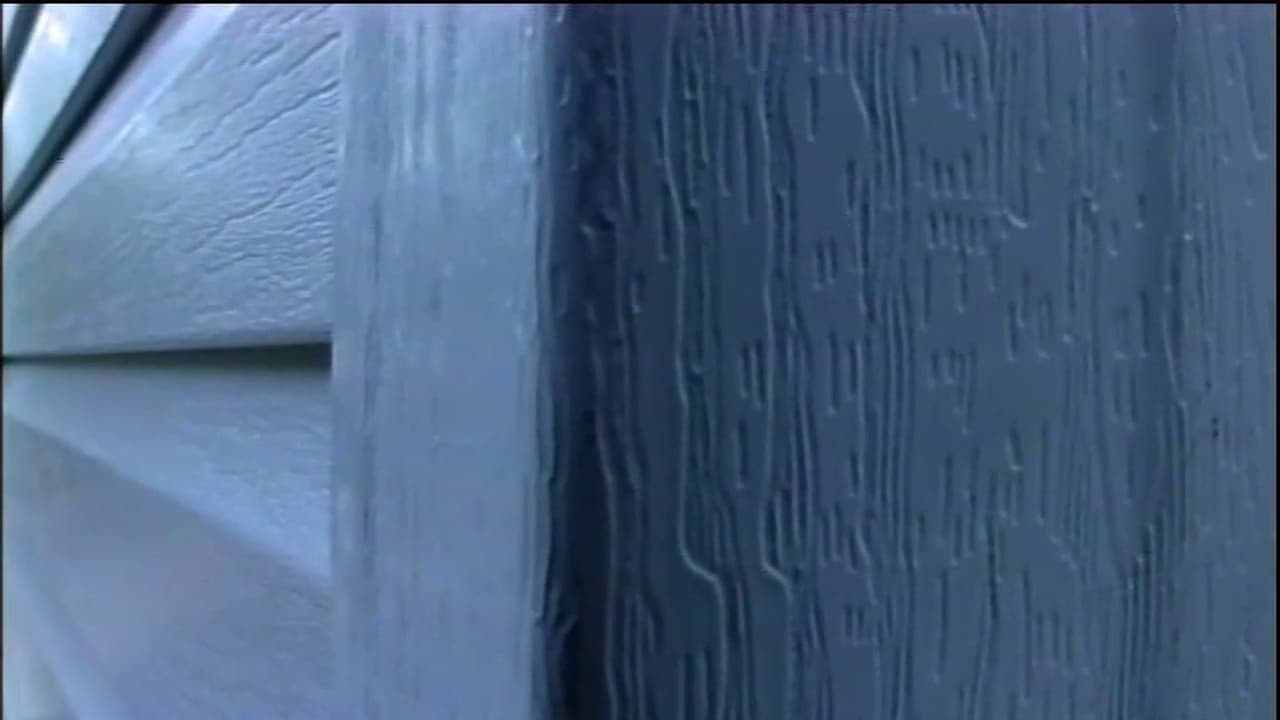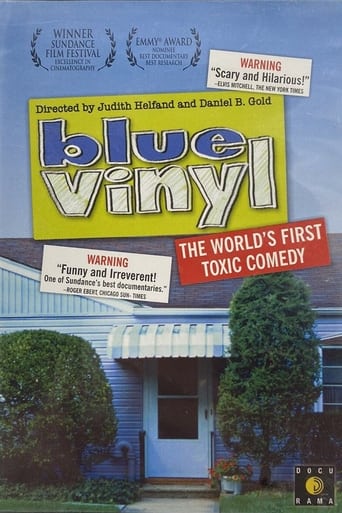

Although made on a lower budget than some of the more popular documentaries of late, "Blue Vinyl" is an excellent film. This investigative work of environmental journalism does a great job of telling the story in an informative, accessible way. It is difficult to appropriately incorporate humor into a documentary about toxic chemicals. It is equally difficult to make a documentary about plastic interesting to watch. But, Helfand and Gold achieve both of these feats. While the story is told from Judith Helfand's perspective, she is not the focus of the film. As a result, the viewer has a character to latch onto without distracting from the story. If you enjoy documentaries, or you're just curious about the topic, this is a great film to watch.
... View MoreBlue Vinyl is lefty scare-mongering propaganda, but nevertheless worth a viewing. Helfand gives enough names and references to provide the viewer with opportunity for deeper research if desired. Chemical-phobic true believers will love the film, and skeptics will find plenty of examples of bad science and misleading presentation to debunk and debate.JH's crusade against vinyl chloride is so intense that she seems unaware of her daily use of hundreds of other synthetics, such as the toxic-spawned semiconductors in her cameras, phones, and transportation. She inflicts this intensity upon her parents, who seem to bear fairly well a level of hectoring that would surely shorten my lifespan if I had to endure it like they did. (I would have had a stroke sometime during the days-long sales presentation by the California mud architect.) She concludes that wood is a dandy safe building material, and recommends old planking recovered from demolished picturesque mills in New Hampshire, at premium cost. Since the supply of quaint old mills and barns is limited, sooner or later she's going to have to start cutting down forests, and that will probably upset some of her allies. It's not as if there are any work-related injuries or deaths in the lumber industry! (And if your house catches fire, be sure to breathe in that harmless innocent wood smoke; it's so much better for you than PVC combustion products.) Let me mention just two specific problems with the film: 1) She depicts the Bucket Brigade, a grass-roots air-sampling project in a Louisiana community. But she fails to show whether any _control_ samples were taken, which would establish whether the samples were perhaps contaminated by the _plastic_ bags in which they were collected. 2) She interviews a spokesperson for the vinyl industry (a PhD organic chemist.) She goes out of her way to demonstrate her frustration that the interview is limited to 30 minutes. Well, guess what? She doesn't even show you the full 30 minute interview; she edits it down to about two minutes, most of which is taken up by her canned questions. The least she could have done was to include the full, unedited interview in the DVD extras, but I have a feeling that would have been too fair to her nemesis.
... View MoreBeing a very environmental and health-oriented individual, I found "Blue Vinyl" to be informative, occasionally moving, and very blunt. The director of this film did not mean to create a stirring, emotional, hammed up documentary full of woe and drama. She sought to make a point which is exactly what she did and she did it very well. The film didn't drag on as some documentaries do, and it was often very humourous and fun. I LOVE the fact that she dragged that piece of blue vinyl around with her everywhere that she went. That just... oh... it made me happy inside. In conclusion... this film made a group of obnoxious, annoying sixth graders sit still and listen, therefore you should watch it and be enlightened as to the ways of the Nazi Vinyl industries. And plant a tree. Trees are a good thing. However... Hitler was a bad thing. Hitler didn't like trees. It's well documented.
... View MoreInteresting that the two previous 'comments' for this film are from 'film fans' who have opinions about no other films! The complaints mentioned--that the film is based on 'biased' science, and that the spokesperson for the Vinyl Institute was extremely convincing--don't outweigh the considerable evidence on display here. To set the record straight: Judith Helfand DID interview two scientists associated with Greenpeace. She also interviewed a scientist, previously employed by the vinyl industry, who agreed with the contention that, yes, PVC is a potential toxin. There are also interviews with an Italian scientist, other American scientists, and a plethora of PVC victims who became seriously ill after exposure in the workplace to PVC. On a less contentious note, this is one of the most enjoyable 'doomsday' docs out there, and Ms. Helfand is a delightful and entertaining host, even as she points out the obvious: big money will always trump public health and environmental safety.
... View More